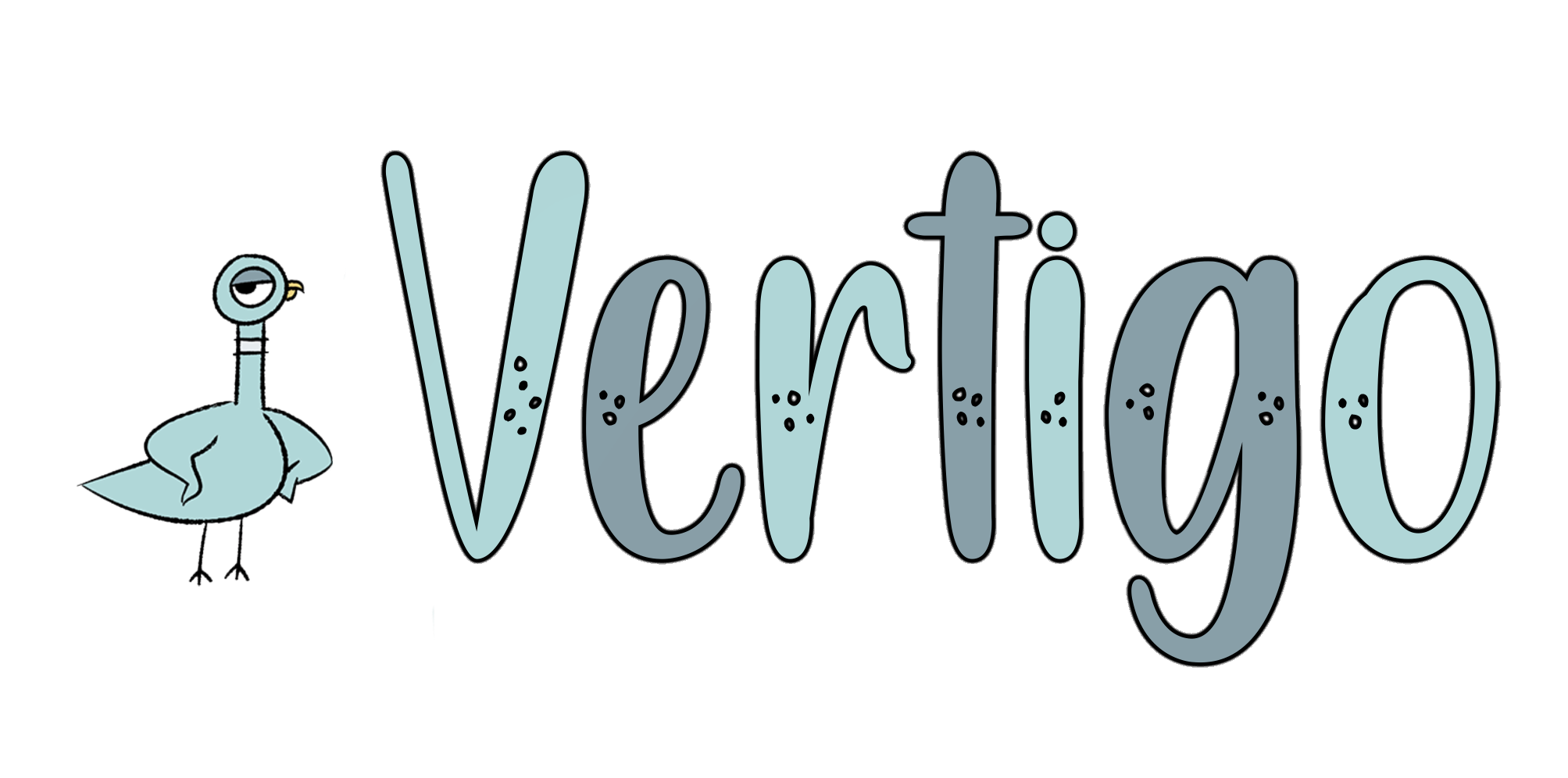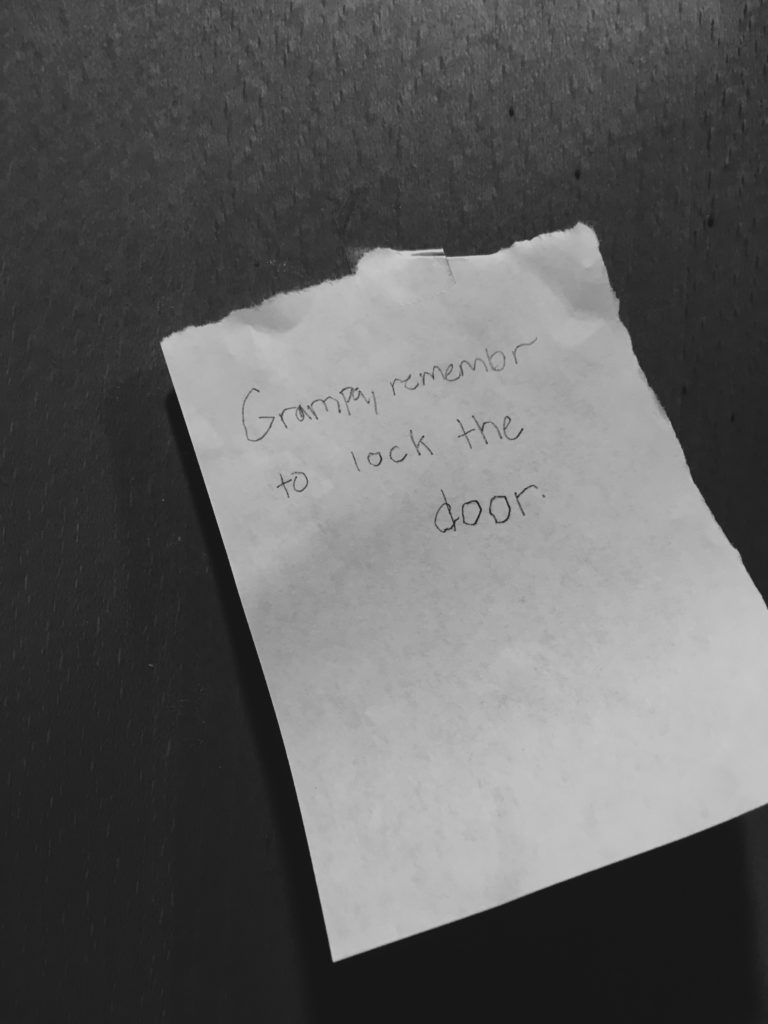Roland’s eyes flickered open, and he felt a tremble of panic as he struggled to remember where he was. The room looked nothing like home. Instead of carpet, it had gray, tiled floors. Instead of the small window by his favorite leather chair, there was a floor-to-ceiling window with a view of denuded trees and the ocean. There was a sound of an unfamiliar woman talking on the phone in the next door room. Overhead, lighting seemed unnaturally bright, white-washing the entire room. Sitting up on the bed, he looked down at his hands, shocked at how old and liver-spotted they were. When he glanced up towards the door, he saw a young woman sitting in the chair next to his bed. She was reading a book.
“Hi, Grandpa,” she said, noticing that he was awake.
For a moment Roland considered whether he should tell the stranger to leave, that he wasn’t anyone’s grandfather. But then he realized that somewhere along the way, he had learned to just roll with it. It was better to be quiet and nod than to cause a fuss. How he learned this or when, he didn’t remember. He noticed the young woman had red hair, just like his son Freddie. He saw the familiar constellation of freckles on her cheeks. The thickness of her eyelashes sparked his memory, and for a second, the feeling was maddening. He used his mind to overlay the image of his son’s face onto the young woman’s, and the resemblance was uncanny. It was not inconceivable that she could be his granddaughter.
“Grandpa, it’s me, Elizabeth.”
“Where’s Freddie?” Roland demanded.
The bright lights overhead reflected off her eyes. “Don’t you remember, Grandpa? Dad died last year.”
“I-I don’t remember.” Roland paused. “How?”
“He was rock climbing, and he fell.”
“When is the funeral?”
“It was last year. You were there. We had it on a boat, and we scattered his ashes into the ocean, just as he wanted.”
Roland tried to remember being on a boat and scattering ashes, but no matter how hard he tried, nothing came to mind. Even so, he pictured a large ferry out on the water, and someone tossing gray, lifeless sand overboard. Suddenly it was hard to breathe. The thought of his son as dust particles floating in the sea made him feel as if someone had stomped on his lungs.
“Where am I?” Roland pondered out loud.
“You’re at Felicity Hospice,” his granddaughter replied.
Hospice… He knew that word had something to do with dying, but couldn’t gather what it meant exactly or how it applied to him. He wondered if they had spices here. And he was supposed to be sad about Freddie, wasn’t he? What about Freddie? What happened to him? He could only recall rock climbing and a boat, but those were both happy things, right? He closed his eyes and remembered his favorite camping trip with his son.
They had spent a whole morning packing a car full of items they wouldn’t use: fishing poles, nets, a magnifying glass, an inflatable raft, sunscreen, and bug repellent. When they had arrived, they spent the whole afternoon and evening roasting sausages and marshmallows over the fire and later identifying the constellations in the night sky. When a fly flew into Freddie’s mouth, he screamed, “Gross! I just ate a fly!” That evening, after the sky turned shades of purple and pink, and the sun sank beneath the ocean, they listened for night animals, the spotted owls and the raccoons.That night, while Freddie slept, Roland had snuck out of the tent before dawn to watch the sunrise light up the dew on the grass and the needles on the pines. He had breathed in the crispness of being alive. Roland remembered how Freddie was different when he was young. He had giggled at everything. Random things like floating bubbles had made him laugh, and once he started, he couldn’t stop.
At Felicity Hospice, the droning sound of a vacuum in the background made Roland’s eyes feel heavy. Through the open door, he could see a man wearing scrubs carrying food on a cafeteria tray. The room smelled like frozen IVs and burnt metal and rubber. Roland worked to keep his eyes open, but the forces that struggled to keep him awake eventually lost. The bed was too warm, his body too fatigued, the noise too constant, his granddaughter too quiet. Roland fell asleep.
⁂
“Look at the stars,” Roland said to Freddie. Roland felt the cold sand invading his flip flops and the warm salty wind in his hair. The sound of the waves droned on, and the moon rippled in a bright path on the ocean and in the wet sand. Their tent sat only half a mile behind them at the campgrounds.
Freddie, only four feet tall, leaned his head back so far that he stumbled backwards and had to catch himself. “Daddy where did all the stars come from?” he asked.
“They’re always there. There’s just too many people in the city, and they use too much light. You can only see the stars when you come out to places like these, where it’s dark and empty. But if you remember this image, you can close your eyes at home and relive it, see the stars again.”
They continued on, a slow saunter along the beach, stepping over the occasional driftwood, leaving their sunken, wet footprints behind. The darkness prevented them from seeing the cliffs that retained the ocean, the swaying trees that held the mysteries of the forest, and the campground parking lot, which was empty minus their Volvo.
“Do you hear the owls, Daddy? I don’t hear anything,” Freddie asked with a disappointed tone.
Roland paused and put his hand on Freddie’s shoulder, so he would stop too. They stood together in the dark under the moonlight and listened. Roland spoke quietly, “If you pause and listen very carefully, and if you’re patient enough, you’ll hear them.” Together they listened, but sensed only the saltiness of the sea.
“Why can’t you see them?”
“Sometimes they’re hard to find, but if you focus on their voices and hold very still, you’ll be able to hear and see them.”
“What if I can’t?”
“Then you can remember. Once they’re in your memories, you have to keep those experiences in your mind, take care of them. If you let go too quickly, then they’re gone.”
As they waited for the sounds and sights of the owls, Freddie exclaimed, “Look, Daddy, I’m a fish!” Then he turned towards the ocean and took a leap, diving headfirst into it, and Roland followed. The water felt lukewarm, like silk against his skin, but when he opened his eyes, he saw himself sinking deep into the darker waters. As he sank deeper, toward the bottom of the ocean, his son, Freddie, became a speeding creature, flitting through the dark blue like a fish. Next Freddie swam upward toward the moonlight, too far away for Roland to reach or call to.
While he sank, Roland watched Freddie, until Freddie became smaller and smaller and was nothing but a black dot against the moon. Roland, stuck at the bottom of the ocean, felt the water filling up his lungs, and suddenly he was choking.
⁂
Coughing, Roland opened his eyes and heard a young woman asking, “Grandpa, do you need anything? Water?”
Roland had no idea who this woman was, but his throat was dry, so he replied, “Sure.”
His granddaughter filled a glass with water and a straw. She held it under his mouth, and he took a long sip and several satisfying gulps. Then he glanced at her quizzically. “Where’s Freddie?” he asked, sitting up, suddenly remembering his dream and the moments before he had opened his eyes.
“He’s gone, Grandpa.”
Gone, Roland thought. Gone was a word he couldn’t relate to his son. He knew what it meant. His dog, Lucky, a labrador-shepherd mix that liked to bark at the vacuum cleaner and chew shoes, had gotten out of the fence one afternoon and never returned. Lucky was gone. All the milk was gone. The keys used to be on the table, but now they’re gone. He understood these uses of gone. But where had Freddie gone?
Just then, a nurse entered the room. She strapped a cuff around Roland’s arm and squeezed the bulb in her hand until the cuff nearly stopped the circulation. She asked, “Are you in any pain, Mr. Hoffman?”
“Yes, but I ….” he tried to name where the pain came from in his body, but he couldn’t name it. It was that spot next to his belly button, but he forgot what it was called.
The nurse gave Roland medicine, and then she left the room.
“What’s wrong with me?” Roland asked Elizabeth.
“You’re sick, Grandpa. You’ve been in the hospice for a couple weeks now. You have Alzheimer’s and lung cancer.” She spoke so quietly that he had to guess at some of her words.
Roland remembered Alzheimer’s. He recalled going to the doctor and the doctor making him recite words and draw an analog clock. He remembered the diagnosis and discussing it with his wife. “At least I won’t live long enough to see everyone I love die,” Roland had said. His wife had replied, “Don’t be morbid; you’ll outlive us all.” At the time, Roland thought about how he would tell Freddie about his Alzheimer’s. He couldn’t take him out for ice cream like the old days; he would have to sit him down and have a formal conversation, father to son. He imagined giving his son his tackle box and fishing gear, his watch, and his house someday. Freddie was their only child. Everything would go to him.
“Freddie, I have Alzheimer’s.”
The twenty-six year old Freddie had sat there in shock, unable to speak for five long minutes. They were lounging in the living room in soft leather chairs, their bare feet on the hardwood floor. It had been a hot day, but the breeze was now blowing in through the windows.
“No matter how hard I try, one day I’ll forget. I won’t be able to remember you or any of the events or people in my life.”
“I’m sure you’ll never forget the day I lit Lucky on fire,” Freddie joked.
“I’ll start to forget everything, the good and the bad. I might even forget about you, and who you are.”
Roland glanced at his son’s hazel eyes and saw the reflection of the window behind him, which was cracked from the neighbor’s baseball. He noticed the splash of freckles on Freddie’s face which always reminded him of the stars, the night sky full of pockets of warmth, the long nights spent next to the heat of the campfire, the sun rising on the following morning.
As Roland sat in the hospital bed with his granddaughter sitting beside him, he felt a warm shock of gratitude that he could remember his son. Even if he had forgotten the face of his wife and the name of his granddaughter, at least he could still remember Freddie. So many of the good memories could keep him company, in his last days. Freddie. The name floated around in his brain, making him almost dizzy. Freddie, the rambunctious child. Freddie, the inquisitive young man. Freddie, the mountain climber. Freddie was the name of the famous dancer and singer, Fred Astaire. Then there was the boy who lived down the street when Roland was a child; the kid’s name was Frederick. Fred rhymes with red and bed and said and led.
Roland looked up at the ceiling and asked out loud, “Who’s Fred?”

